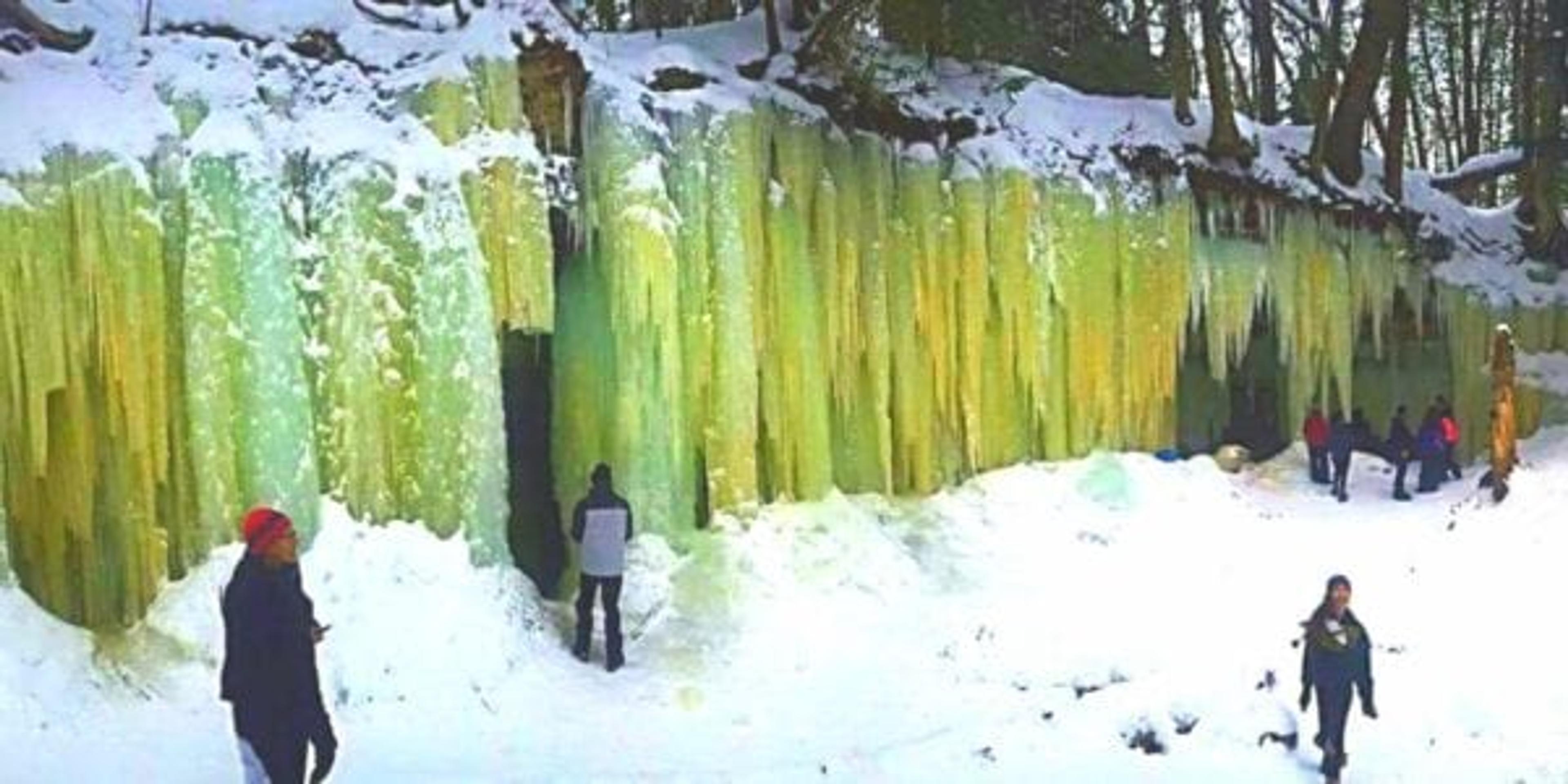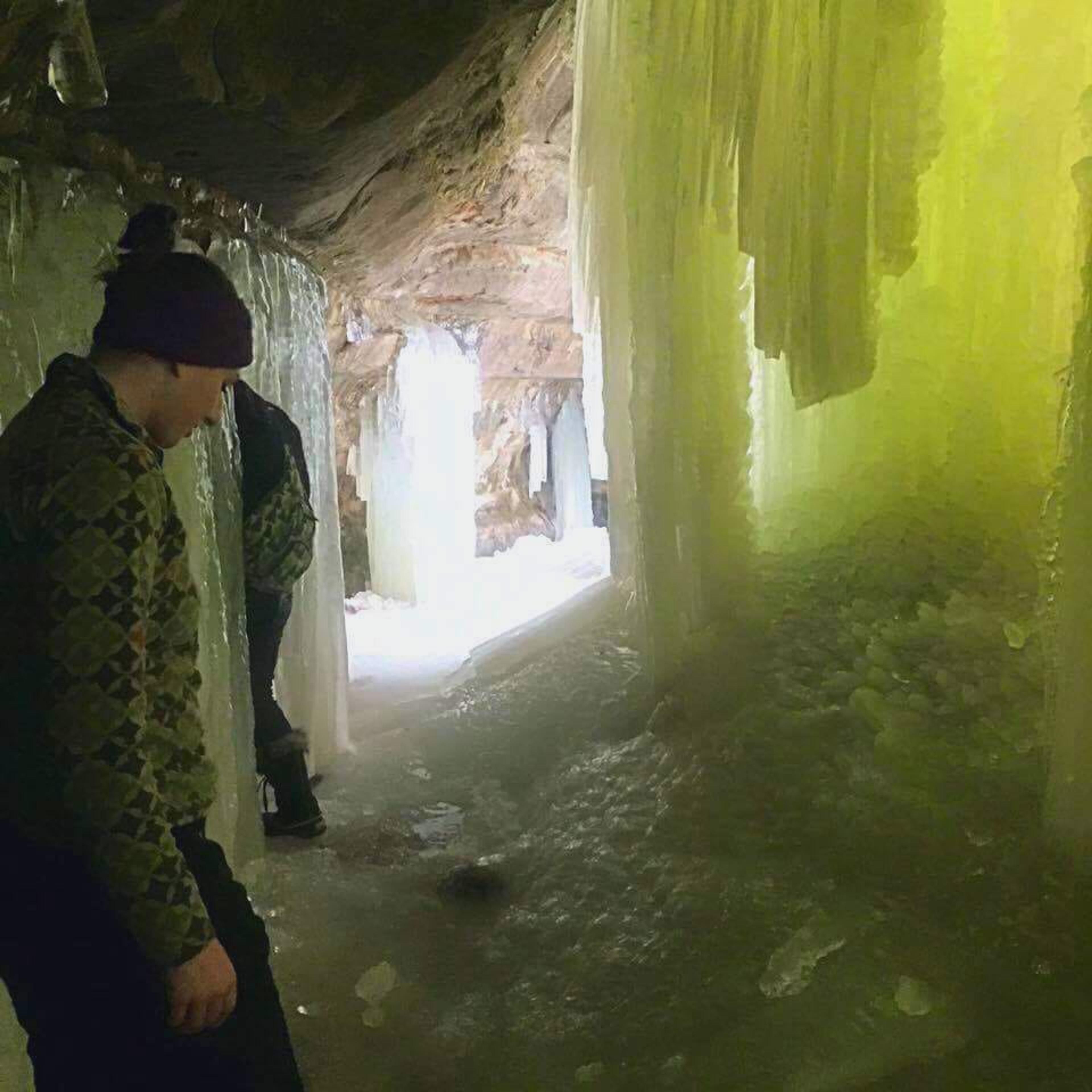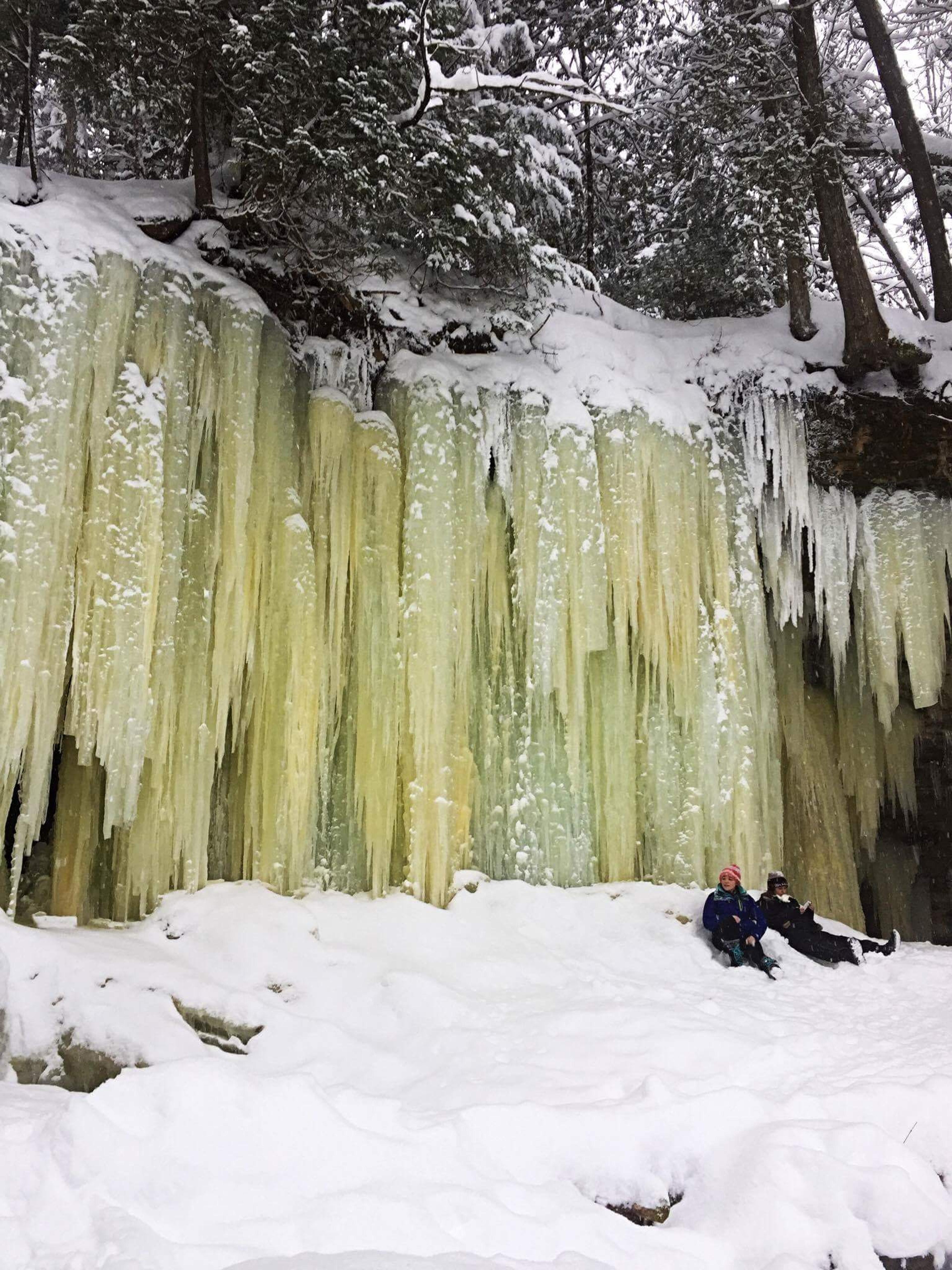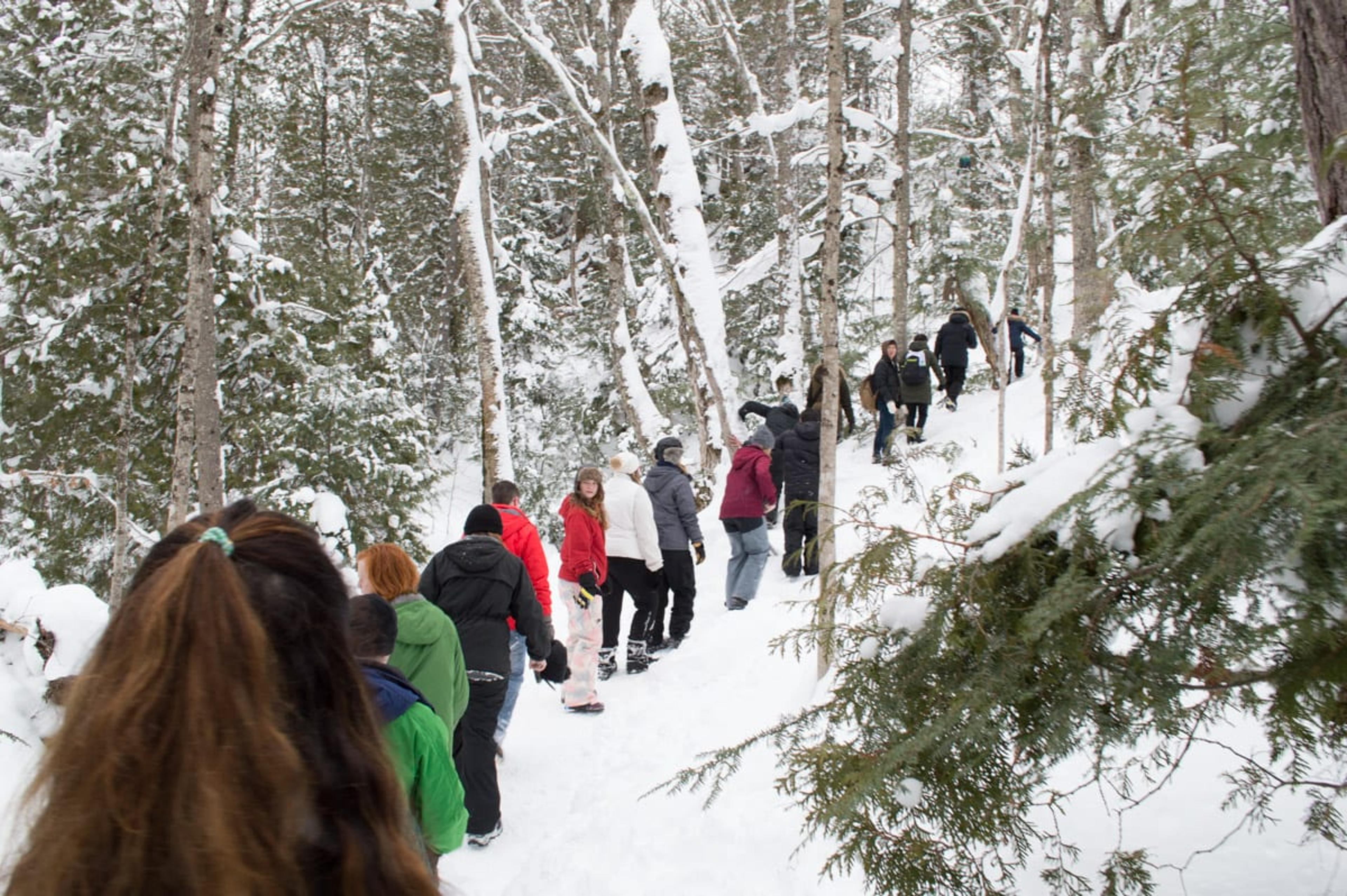The Upper Peninsula’s Eben Ice Caves: Winter Hiking 101
| 3 min read

The Eben Ice Caves, also known as the Rock River Canyon Ice Caves, hide within the woods of Michigan’s Hiawatha National Forest. They are a unique Upper Peninsula treasure that attract visitors from all over for afternoons of winter hiking.

The caves are formed from snow that has melted over the edge of a small cliff. When the snow freezes over the edge, a cave is formed behind the accumulated ice.
It looks like a frozen waterfall, but there is actually no running water over the cliff in the warmer months. With caution you can walk through the cave, peer through holes in the wall and admire the frozen structure made completely from nature.
These caves are not a roadside attraction; they’re almost a mile hike through the woods. It is a very family-friendly trek and parents can pull small kids on sleds through the snow-covered trail. You can follow an easy path for most of the way, but if there is a heavy snowfall the night before you may have a harder time finding your way.

Late December through early March is the best time to view the caves safely, because before and after the weather might be too mild for the formation to be frozen.
Winter Hiking 101
During any excursion, you need to be prepared as possible, especially in the winter. After a full afternoon of hiking, boots and gloves may not stand up to ultra-cold conditions. Here are some winter hiking basics to keep you warm and comfortable:

- The boots: Waterproof boots are a necessity when winter hiking. If you want to go pro, or just want to be extra cautious, Yaktrax are a popular addition to boots that need a little help when it comes to traction.
- Waterproof everything: Water resistance isn’t only necessary for your boots, it is vital for the rest of your gear too. To stay warm, your gloves, coats and pants need to stay dry.
- Hand warmers: Keeping some HotHands in your pockets might just be your saving grace while on a winter hike. You don’t have to activate them until you absolutely need to, helping them serve as a great back-up plan if you start to get cold.
- Layer: It’s winter, and it’s cold. But when you’re constantly moving in the cold while well insulated, you can still overheat and sweat, which will make you uncomfortable and ready to leave your coat behind. Be prepared to get a little warm in the cold by appropriately layering.
- Snow pants: Even if you don’t plan on getting down on the ground, snow pants are your best support system on winter hikes. Not only do they keep you insulated, but in case you fall or need to sit down you won’t be soaking wet from the snow.
- Water: Summer isn’t the only season when you need to hydrate. In the winter, your body is working overtime to keep you warm, which means you still need to be fueling it properly. You could feel fatigued more quickly if you aren’t drinking enough water while hiking, so bring a bottle with you. Throw in a couple granola bars if you plan on being out all day!
If you liked this post, you might also enjoy:
Photo Credit: Meghan Hohenstein, Manuel Ortega





